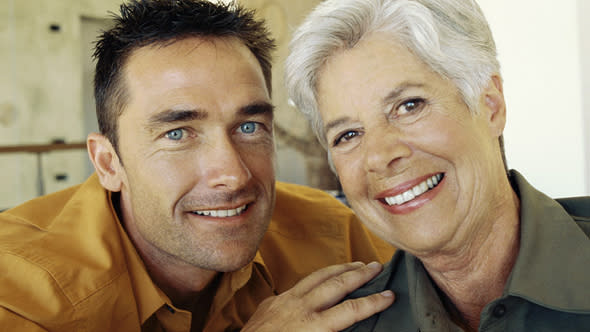Life after a stroke

Pic: Getty
A stroke can have a devastating effect not only on the sufferer themselves, but also on the family and friends that care for them. Though the severity of the damage caused varies greatly, recovery can be a long, hard process. If you are in the process of recovery, or are caring for someone who has recently suffered a stroke, here are some tips on life after the event and where to find help.
Related Searches
The psychological and physical impact
Depending on the severity of the damage caused by the stroke, the resulting health problems can be wide-reaching. Physically, a stroke can cause weakness or paralysis in one side of the body, and many find they have problems with coordination and balance, while extreme fatigue is common. Aphasia, where the person's ability to communicate, affects one in three survivors, and memory and concentration can also be affected. Psychological issues such as depression and anxiety are also common following a stroke.
Because the symptoms and their severity vary so greatly from person to person, rehabilitation will be tailored to the sufferer, and initially, a specialist team comprising physiotherapists, psychologists, occupational therapists, speech therapists, and other doctors and nurses should be on hand to help take those initial first steps to recovery.
Day-to-day
Before a stroke survivor leaves hospital, an assessment of their home should be carried out to consider what changes, if any, need to occur to aid day-to-day life. Social services should be able to provide a community care assessment and a carer's assessment to make decisions on such changes, which could include necessary equipment at home, home help or a care assistant, services such as meals on wheels, and advice on financial support.
As a carer, you can help rehabilitation in a number of ways, such as helping a stroke survivor to practise tasks set by their therapists, lending emotional support to help them stay positive, and learning skills to deal with specific challenges, like helping them move around their home.
In terms of the practicalities of daily life, you will not be able to drive for at least a month following a stroke, and it is advisable to speak to your GP or a member of your healthcare team about how to proceed depending on your symptoms. Any return to work should also be discussed. You may be able to speak to your employer about working part time or in a different post, or visit your local job centre for advice about possibly retraining.
%VIRTUAL-AFCSponserAds%
Further support
Aside from health professionals, you may be able to seek help in the wider community, whether you are a survivor or a carer. The Stroke Association offers a number of support services designed to help sufferers rebuild their lives, and to offer help and advice to families and carers. The charity runs stroke clubs, where those affected by a stroke can share their experiences, and get involved in activities that may help with rehabilitation. They also run a helpline on 0303 3033 100, and could offer a Life After Stroke Grant of up to £400 to help with heating costs, disability aids or white goods for the home.
Have you suffered a stroke, or are you caring for a survivor? What advice would you give to others in your position? Leave your comments below...



